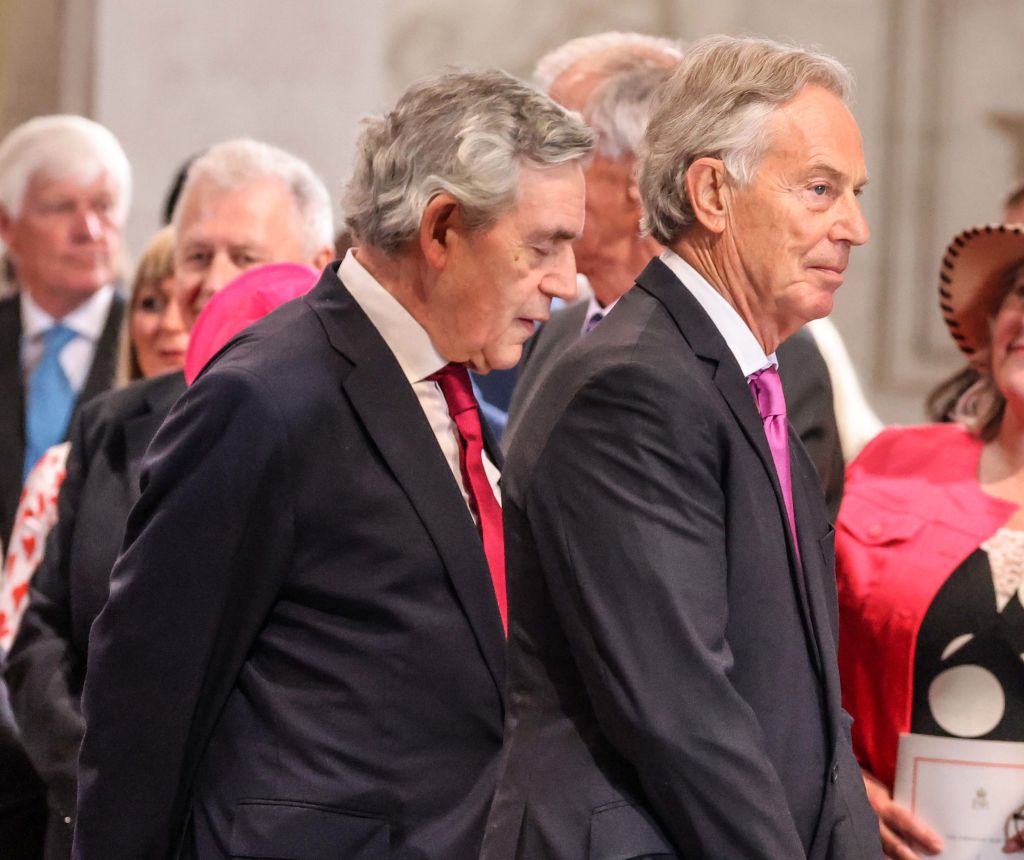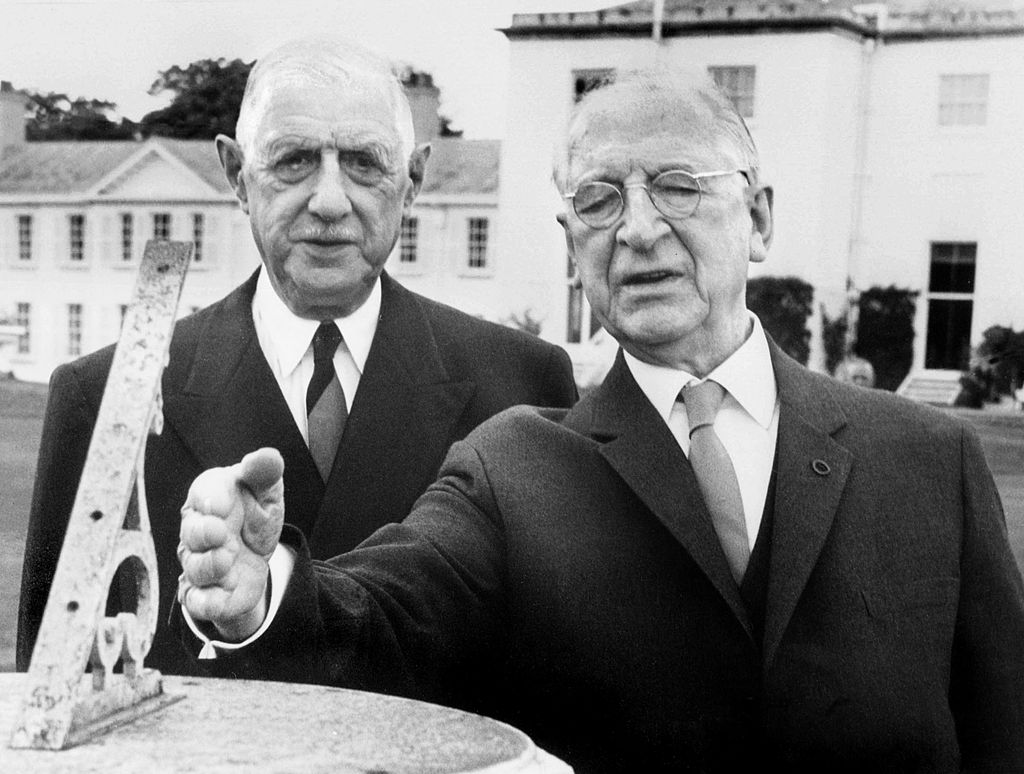FORMER British Prime Minister Gordon Brown enjoyed a private holiday in west Cork over the summer, according to the Irish Mirror. The holiday at a private home was a well kept secret. A detachment of elite armed gardaí along with a British special force kept close watch throughout.
Gordon Brown would probably not figure exceptionally high on anyone’s to-do list for assassination, but as a former British head of government he will always be considered at some danger by security forces. The Irish Mirror reports that a detail of British military and civilian close-protection officers journeyed to Ireland in advance of the trip to judge the security risks.
Mr Brown’s trip is being seen as unusual. As far as records show, no former prime minister of Britain has paid a private visit to Ireland, at least in modern times. It can be assumed that the Duke of Wellington may have visited his birthplace in Dublin or his home in Meath in the 19th century, but beyond that probably no other former British prime minister has ventured westwards across the Irish Sea.
Tony Blair, despite having close family connections in Donegal has not made that trip, as far as is known. And James Callaghan, with close family ties on his father’s side to Co. Cork, never visited Ireland in a private capacity. As British home secretary in the late 1960s and early 1970s he was responsible for overseeing the operations of the British army to support the police in Northern Ireland. He would thus have been a prime target for republican paramilitaries.
 LONDON, ENGLAND - JUNE 03: Former British Prime Ministers Tony Blair and Gordon Brown leave St Paul's cathedral after the service of thanksgiving for the Queen on June 3, 2022 in London, England. The Platinum Jubilee of Elizabeth II is being celebrated from June 2 to June 5, 2022, in the UK and Commonwealth to mark the 70th anniversary of the accession of Queen Elizabeth II on 6 February 1952. (Photo by Richard Pohle - WPA Pool/Getty Images)
LONDON, ENGLAND - JUNE 03: Former British Prime Ministers Tony Blair and Gordon Brown leave St Paul's cathedral after the service of thanksgiving for the Queen on June 3, 2022 in London, England. The Platinum Jubilee of Elizabeth II is being celebrated from June 2 to June 5, 2022, in the UK and Commonwealth to mark the 70th anniversary of the accession of Queen Elizabeth II on 6 February 1952. (Photo by Richard Pohle - WPA Pool/Getty Images)The president who came, the one who cried off
THE only retired head of state to have visited Ireland in a private capacity remains President Charles de Gaulle. President Trump came close this year, but his visit was called off at the end of August. Speculation as to the reason points in the direction of the FBI executing a search warrant at Trump’s Mar-A-
Lago in Florida. The ramifications of this may have been enough to keep the Trump entourage at home.
No such untoward actions hindered President de Gaulle’s visit to Ireland in 1969. De Gaulle did have distant Irish roots. The MacCartans in Co. Down are a family who formed the backbone of the great Down football teams of the 1960s. Charles de Gaulle’s grandmother was a MacCartan, from the same family as this GAA royalty.
Whether this connection weighed in his decision to tour Ireland is not recorded anywhere. What we do know is that after resigning from the post of French president – after losing a referendum – he left France two weeks later, destination Kerry. The former president spent six weeks in the country, between May
10 and June 19, 1969.
His visit was a staggering decision. Unlike today, Ireland held no cachet for international celebrities whatsoever back then – and the Irish authorities were as gobsmacked as the French.
To paraphrase a contemporaneous editorial in the Irish Times, the president’s arrival in Sneem seemed as bizarre as if Chairman Mao had announced he wanted to travel to Bangor to use the public swimming baths. Or if the austere Pope Paul VI had announced he wanted to kiss the Blarney Stone.
Perhaps the parallel lives of President de Gaulle and Éamon de Valera provide one clue to the visit. In his 1991 book De Gaulle and Ireland, Pierre Joannon, Ireland’s consul general on the Côte d’Azur, summed up a certain commonality between the two men. Both had a pronounced sense of their nation’s destiny, a destiny of which they felt they were in some ways the very embodiment.
Both were devout Catholics, and both had led armed insurgence movements. Further, both had failed to achieve their ultimate goals: Ireland remained divided with part still in British hands, and France had not been restored to its former glory and grandeur.
De Gaulle did mention his Irish blood during his visit, but had seldom made much reference to it beforehand. Some observers have pointed to the fact that it must surely have jarred with de Gaulle that Ireland remained neutral during World War II, a war that saw his country occupied and many thousands of its citizens murdered by the Nazis.
But no record of any such misgivings have so far been uncovered.
 French president Charles de Gaulle (L) speaks with Irish president Eamon de Valera 18 June 1969, during his visit in Ireland. AFP PHOTO (Photo credit should read -/AFP via Getty Images)
French president Charles de Gaulle (L) speaks with Irish president Eamon de Valera 18 June 1969, during his visit in Ireland. AFP PHOTO (Photo credit should read -/AFP via Getty Images)
Destination Sneem
WHATEVER the reason for his decision to cross the sea to Ireland, de Gaulle and his wife arrived in west Cork in the summer of 1969. Their rented Humber rattled over the cattle ramps as they headed up the laneway to the Heron Cove Hotel in Sneem. This itself was an odd choice. According to local rumour the proprietor of the hotel was in danger of eviction as he hadn’t paid his rent in over a year. So as well as keeping an eye open for the arrival of the French president and his wife, the hotel owner had to keep a wary lookout for the bailiffs.
It’s hard not to speculate if anything of that sort was in play during Gordon Brown’s stay in Kerry. Like President de Gaulle he might just have shrugged and said, “Liberté, égalité, fraternité.”
But in Sneem the bailiffs kept their distance, although the world’s press did not – and the pub landlords of Sneem were delighted at the extra business.
The de Gaulles did partake in some sightseeing – including a drive past of Daniel O’Connell’s restored home at Derrynane.
A local priest, Father Robert Flavin, who said Mass for the general at The Heron Cove, became a minor celebrity. Interviewed by the international press, Father Flavin began receiving correspondence from all over the world – some just addressed to “Father Flavin c/o General de Gaulle, Ireland.”
General de Gaulle never did make it to Co. Down to visit the MacCartans. Co. Down was, of course, in British jurisdiction and the French president had vetoed Britain’s accession to the Common Market, as the fledgling EU was known. However several members of the MacCartan family travelled to Áras an Uachtaráin towards the end of the visit.
De Gaulle returned home on June 20, 1969. He died a year later at his residence in Colombey-les-DeuxÉglises in the Haute-Marne region of northeast France.

